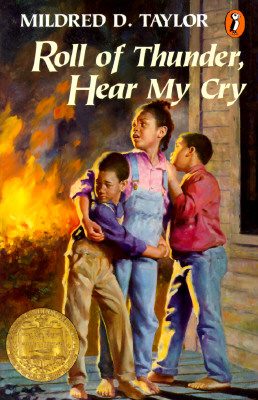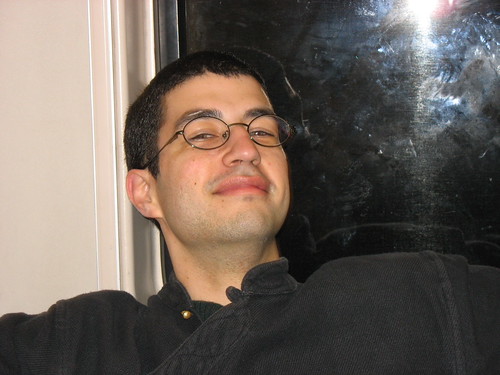
Mark Edmundson’s Why Read
Begin: 04/19/07
End: 04/26/07
Quality: Nine out of Ten
Reason: Random
Gene: Non-Fiction. Literary Criticism.
Original Language: English.
Date of Publication: 2004
Fog Index: 13.6/45% are harder.
Flesch Index: 51.7/52% are harder.
Flesch-Kincaid Index: 10.9/45% are harder.
Complex Words: 14%/53% has more.
Number: First.
Synopsis: This book was basically just Edmundson’s (NEH/Daniels Family Distinguished Teaching Professor at University of Virginia) talking about the problems currently with a liberal arts education and then getting into his ideas of the purpose and aim of the liberal arts education and well, why we should read.
Why Read:
Well, there is a lot to write about here, to reflect on and to tease out of the text. The book starts off with a very dim assessment of the university system and a critique of certain aspects of out culture. Edmundson believes that universities are geared more towards these days and that most of the students are taken in by “the culture of cool”. He goes on to lay quite a bit of blame on the way that Universities compete for students. He believes this has made universities advocate for “more comfortable, less challenging environments, places where almost no one failed, everything was enjoyable, and everyone was nice”
He talks quite a bit of students today and also of television. “TV is a tranquilizing medium, a soporific, inducing in its devotees a light narcosis. It reduces anxiety, steadies and quiets the nerves. But it also deadens.” (11)
His seeming answer to all of these things was a better liberal arts education. He believes that central to the true education in the humanities were the activity of discovering oneself as one is in great writing and that literature allows glimpses of the self that could be, a self and a world, for that matter, that you can begin creating.
He talks about the idea of a Final Narrative. This seems to coincide with a worldview or an ideology, the ideas, principles and commitments which argument, logic and analysis are unlikely to change. He sees literature (and a liberal arts education) as a way for students to develop their final narratives, a way of growing and developing. He uses this Emerson quote as a explanation of how he sees human development. “The life of man, is a self-evolving circle, which, from a ring imperceptibly small, rushes of all sides outwards to new and larger circles, and that without end.” (29)
He talked briefly about Ironists. Those human beings who are aware that anything they know and believe in is subject to change and be replaced by another idea. Those who hold even their most fervent beliefs with doubt and speculation.
He believes it is extremely important to encounter works with various beliefs and put them through what he calls, “imagined experience”. He believes that students can find their highest mode of being through encounters with what he likes to call, “the best of what has been known and thought.” AKA Literature.
“For the simple reason that for many people, the truth-the circle, the vision of experience- that they’ve encountered through socialization is inadequate. It doesn’t put them into a satisfying relation to experience.” (52)
A literary critic makes a author or book’s implicit wisdom explicit.
Edmundson wants literature to be seen as a sort of secular holy writ, a means for shaping ourselves. Or as he says, “Literature is, I believe, our best goad toward new beginnings, our best chance for what we might call secular rebirth…the fact remains that in literature there abide major hopes for human renovation.” (3)
That’s All I have for now. I am going to give you a shitload of quotes. I will be back sometime in the next month to talk about what I feel about literature but that will take a while.
“They are the questions that should lie at the core of a liberal arts education. Who am I? What might I become? What is this world in which I find myself? How might I be changed for the better? We ought to value great writing preeminently because it enjoins us to ask and helps us to answer these questions, and others like them” (5)
His seeming thesis was as follows….“The function of a liberal arts education is to use major works of art and intellect to influence one’s Final narrative, one’s outermost circle of commitments. A liberal education uses books to rejuvenate, reaffirm, replenish, revise, overwhelm, replace, in some cases (alas) even help begin to generate the web of words that we’re defined by….A larguage, Wittgenestein thought, is a way of life. A new language…is potentially a new way to live.” 31-32
The idea of the Final Narrative seems to coincide with worldview or ideology.
It involves the “ultimate set of terms that we use to confer value on experience. It’s where our principles are manifest. When someone talks feelingly about the Ten Commandments, or the Buddha’s Four Noble Truths, or the innate goodness of human beings, or about all human history being the history of class conflict, then, in all likelihood, she has revealed something close to the core of her being. She’s touched on her ultimate terms of commitment, the point beyond which argument and analysis are unlikely to go, at least very quickly.” (25)
Or as Rorty explains it….“All human beings carry about a set of words which they employ to justify their actions, their beliefs, and their lives. These are the words in which we formulate praise of our friends and contemplate for our enemies, our long term projects, our deepest self-doubts and our highest hopes. They are the words in which we tell, sometimes prospectively and sometimes retrospectively, the story of our lives.” (25-26)
Rorty finds that certain people are “always aware that the terms in which they describe themselves are subject to change, always aware of the contingency and fragility of their final vocabularies, and thus of their selves.”
Ironists hold even their most fervent commitments with doubt. They are aware that anything they know is subject to change, to replace by other ideas.
“What Proust is describing is an act of self-discovery on the part of the reader. Immersing herself in Proust, the reader may encounter aspects of herself that, while they have perhaps been in existence for a long time, have remained unnamed, undescribed, and therefore in a certain sense unknown. One might say that the reader learns the language of herself; or that she is humanely enhanced, enlarging the previously constricting circle that made up the border of what she’s been. One might also say, using another idiom, one that has largely passed out of circulation, that her consciousness has been expanded.” (4)
“the fact remains that in literature there abide major hopes for human renovation.” (3)
He sees a couple of things in those who choose to study the liberal arts. “The person who stands on the edge, between regression and progress, past and future, is the one who has made herself ripe for literary education.” (83)
The best literature tends to be a layered experience.” (41)
“But at least they compelled the students to see intellectual work as a confrontation between two people, read and author, where the stakes mattered.” (9)
He finds that taking a deep delight in a book or author is a little like falling in love, but if you want to adapt his or her vision to one’s own life than more than necessary, a critical scrunity is needed.
He finds that literary beauty is the effective interfusion of feeling and thoughts.
The teacher begins the secular dialogue with faith by offering the hypothesis that there is no one human truth about the good life but that there are many human truths, many viable paths.
In a liberal arts education, history is the necessary and profound, rejoined to the liberal arts education.
The test of a book lies in its power to map or transform a life.
“People die miserably every day for lack of what is found in despisted poems-in literary artwork, in other words, that society at large denigrates. My own life, and the lives of others I’ve know offer testimony fdor what Williams has to say. Reading woke me up. It took me from a world of harsh limits unto expanded possibility. Without poetry, without literature and art, I (and I believe many others, too) could well have died miserably. It was this belief in great writing that, thirty years ago, made me become a teacher.” (1)
“So he who would lead a Christ like is he who is perfectly and abosultly himself.” (Oscar Wilde)
“We shape our tools and thereafter our tools shape us.” (14)
“The most consequential poems offer something that is new-or,one might say ‘truth’, that makes significant life possible. Without such truth, one is in danger of miserable death, the kind of death that can come from living without meaning, without intensity, focus or design.” (2)









